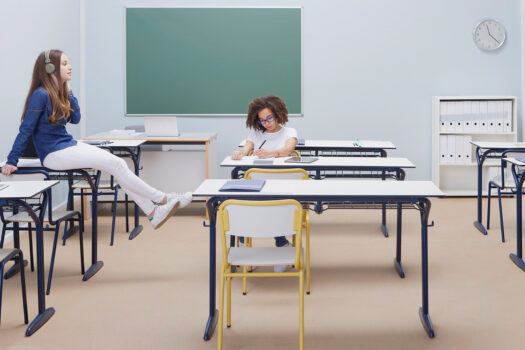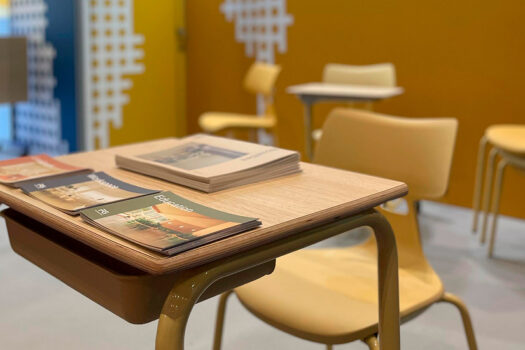Educational advisor in the publishing field, as well as in educational innovation, creativity, emotional education, and education in values. Salva Rodríguez Ojaos has worked as a Physical Education teacher in Primary and as a professor at the Teacher Training School of the Universitat de Barcelona and various postgraduate courses.
His blog dedicated to education, http://www.salvarojeducacion.com/, was awarded the silver spinning top in 2014 at the Espiral Edublogs Awards, in the Educational Reflection category.
Education holds the key to the future, and what happens in the debates on how teaching should be in the 21st century. You defend education as a provocative agent that values critical thinking and student autonomy. How can this be achieved?
Salva Rodríguez: We must change the way we assess in schools to avoid what I call “pretend learning,” that is, the memorization of data and concepts for the short-term, aimed at exams, which are then immediately forgotten and leave no trace. We need to make the content and skills relevant for the students, framing it as a challenge, a provocation, with the greatest possibilities for development.
It also seems important to me to work on non-cognitive skills (meticulousness, perseverance, etc.) in class, which will provide students with the tools they need to learn on their own throughout their lives.
Do you think that, in general, we are advancing toward personalized learning, taking advantage of each student’s capacities and abilities? Is there still much to be done?
Salva Rodríguez: I think there is still a long way to go, but the change has already begun, and it is unstoppable. Despite the fact that educational systems and multiple reforms have a marked tendency toward standardization, there are more and more experiences showing that personalized learning is not only possible but yields excellent results.
What can a school and each teacher do in particular to enhance these personal qualities?
Salva Rodríguez: What to do! One of the best responses that can be given to a question from Malala Yousafzai: “One child, one teacher, one book, and one pen can change the world.” If I weren’t convinced of this, dedicating myself to education would have no meaning.
To what extent is the use of new information and communication technologies (ICT) in classrooms determined?
Salva Rodríguez: I am convinced that the introduction of ICT in the classroom is not an option; it is an urgent necessity. But it is not about filling the classroom with technological gadgets, but about changing our way of teaching to make the most of the broad range of possibilities offered by ICT.
ICTs blur the boundaries of our classrooms and open up to the world. They also facilitate access to and processing of information, as well as the personalization of learning.
The traditional classroom is gradually giving way to other configurations and possibilities in the relationship between students and teachers, and among the students themselves. How does the furniture influence this? What are the real needs that this furniture should address today?
Salva Rodríguez: Traditionally, the classroom has been understood as a unitary and permanent space. But in reality, a classroom is a community learning space that should be able to transform according to the activities being carried out at any given moment. For this, it is essential that classroom furniture is flexible, versatile, adaptable, comfortable, and creative. Furniture is a very important element in stimulating learning.
To what extent is the concept and distribution of the classroom important when considering different educational stages, such as early childhood, secondary education, and higher education? What would the differences be?
Salva Rodríguez: Traditionally, it has been believed that in early childhood education, the classroom should have different learning spaces or corners, while in higher stages, it should not. But that is a serious mistake. At all educational levels, it is necessary for classrooms to easily transform based on the work being done, whether individual or group work.
You need a blog that aims to regain trust in education. To what extent do you think that trust has been lost, and why is it important to restore it?
Salva Rodríguez: The school as an institution is struggling (too much) to adapt to the needs of the liquid world we live in. This has caused the loss of trust in education. What is learned in our educational centers and how it is learned does not always prepare students adequately for the uncertain future that awaits them.
That’s why we must change the real educational paradigm and regain the value of education as the best tool to prepare future generations for life.



